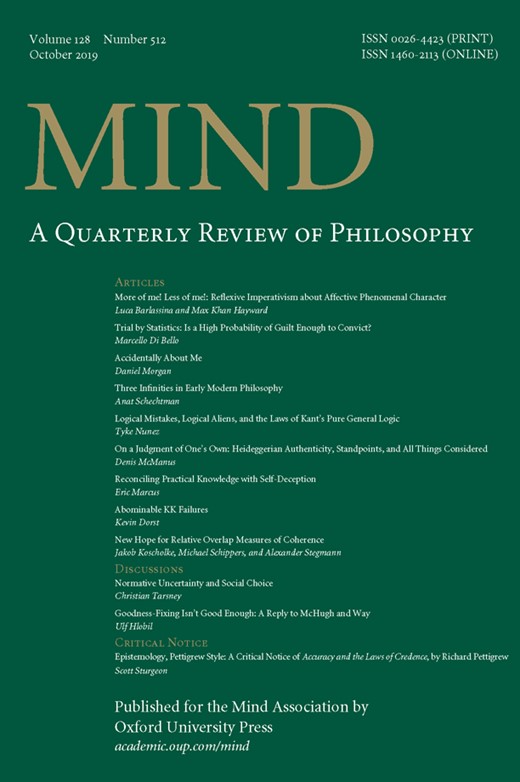-
Views
-
Cite
Cite
Scott Sturgeon, Epistemology, Pettigrew Style: A Critical Notice of Accuracy and the Laws of Credence, by Richard Pettigrew, Mind, Volume 128, Issue 512, October 2019, Pages 1319–1336, https://doi.org/10.1093/mind/fzy029
Close - Share Icon Share
Extract
The sharpest corner of the cutting edge of recent epistemology is to be found in Richard Pettigrew’s Accuracy and the Laws of Credence. In this fine book Pettigrew argues that a certain kind of accuracy-based value monism entails that rational credence manifests a host of features emphasized by anti-externalists in epistemology. Specifically, he demonstrates how a particular version of accuracy-based value monism—to be discussed at length below—when placed with some not implausible views about how epistemic value and rationality relate to one another, ensures that rational credence manifests many of the structural properties emphasized by those who give evidence pride of place in the theory of rationality. A major goal of Pettigrew’s book, then, is to make clear how accuracy-based value monism fits together with the phenomena used by those who argue against accuracy-based externalism.2
Part I of the book explains how accuracy-based value monism underwrites the view that rational credence manifests the structure of a classic probability function. Part II uses value monism to argue that something like Lewis’ Principal Principle is true, and thus roughly that credence in outcome should match credence for its objective chance.3 Part III argues by appeal to accuracy-based value monism that something like the Principle of Indifference is true, and thus roughly that rational credence should spread evenly across elements of a partition for which evidence is indifferent. And Part IV argues by appeal to value monism that agents should plan to update by Conditionalization, and thus, roughly, that agents should plan to change credence after receipt of some news in line with their take on the world conditional on that news.4



